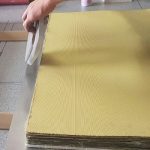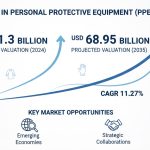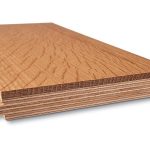Global Abaca Fiber Market
As stated in our extensive report, the Global Abaca Fiber Market accounted for USD 515.2 Million in the year 2022 and is projected to reach a value of USD 1362.1 Million by 2030.
The Abaca Fiber market is expected to grow significantly in the upcoming years, driven by the increasing demand for eco-friendly products and the rising awareness regarding sustainable development. Abaca, also known as Manila hemp, is a natural fiber that is obtained from the leaves of the abaca plant, which is native to the Philippines. Abaca Fibers are known for their strength, durability, and resistance to saltwater damage, making them ideal for use in a range of applications, including paper products, textiles, and speciality papers.
The demand for Abaca Fibers has been steadily rising in recent years due to the growing demand for eco-friendly products and sustainable materials. With the increasing focus on environmental sustainability and the need to reduce the carbon footprint, the demand for Abaca Fibers is expected to continue to rise. Additionally, the Abaca Fiber market is also being driven by the growing demand for speciality papers, such as tea bags, cigarette papers, and currency notes, which require high-quality, durable fibers.
The Abaca Fiber market is expected to grow at a CAGR (Compound Annual Growth Rate) of {{CAGR_Revenue}} from 2023 to 2030. The Asia Pacific region is expected to dominate the market, with the Philippines being the largest producer of Abaca Fibers. Other key players in the Abaca Fiber market include Ecuador, Costa Rica, and Papua New Guinea. Overall, the Abaca Fiber market is poised for significant growth in the upcoming years, driven by the increasing demand for sustainable materials and the growing popularity of eco-friendly products.
Click To Get a Free Sample On the Research Study

Key Factors Influencing Global Abaca Fiber Market Growth
The growth of the global Abaca Fiber market can be attributable to the following:
- As the world becomes conscious of environmental sustainability, consumers are increasingly seeking out eco-friendly products. This trend is expected to have a significant impact on the Abaca Fiber market, as Abaca Fibers are a natural and renewable resource that can be used to create sustainable products. As a result, manufacturers of paper products, textiles, and other items are increasingly turning to Abaca Fibers as an eco-friendly alternative to synthetic materials.
- The trend towards sustainable development is also driving the growth of the Abaca Fiber market. As individuals and organizations become more aware of the importance of preserving the environment, there is a growing interest in using natural and renewable resources. This, in turn, is set to boost the demands for Abaca Fibers and lead to an expansion of the market.
- Abaca Fibers are particularly well-suited for use in speciality papers, such as tea bags, cigarette papers, and currency notes. These products require high-quality, durable fibers, and abaca is known for its strength as well as resistance to saltwater damage. As the demand for these speciality papers continues to grow, the Abaca Fiber market is expected to expand as well.
- Ongoing research and development activities are aimed at improving the quality and durability of Abaca Fibers. As these efforts continue to yield results, the market for Abaca Fiber is expected to expand as manufacturers can create new and innovative products using improved fibers.
- Governments in several countries, such as the Philippines, are providing support to the Abaca Fiber industry through subsidies and other initiatives. This support is helping to drive the growth of the market by making it easier for producers to invest in new technologies and expand their operations. Additionally, government support can help to raise awareness of the benefits of Abaca Fibers, which can drive demand for the product further.
Asia Pacific Region Expected to Lead the Global Abaca Fiber Market
The Asia Pacific region is currently the largest region in the Abaca Fiber market, with the Philippines being the largest producer of Abaca Fibers in the world. The region is expected to continue dominating this market in the coming years, driven by the growing demand for eco-friendly products and the rising awareness regarding sustainable development.
In terms of the fastest-growing regions, Latin America and Africa are expected to see significant growth in the Abaca Fiber market in the coming years. Countries like Ecuador, Costa Rica, and Colombia in Latin America, and Madagascar and Tanzania in Africa are emerging as major producers of Abaca Fibers. The growth of the Abaca Fiber market in these regions is being driven by favorable government policies, increased interest and investment in research and development, and rising demand for eco-friendly and sustainable products.
In addition, the North American and European markets are also expected to see moderate growth in the Abaca Fiber market. These regions have a high demand for speciality papers and textiles, which require high-quality and durable fibers like abaca. As the demands for eco-friendly products continues to experience a steep rise in these regions, the market for Abaca Fibers is expected to grow as well.
Conclusion
The Abaca Fiber market is poised for significant growth in the upcoming years, driven by a range of factors such as the rising demand for eco-friendly and sustainable products, increasing awareness of sustainable development, and government support. The Asia Pacific region is currently the largest producer of Abaca Fibers and is expected to continue dominating the market, with Latin America and Africa emerging as the fastest-growing regions. Technological advancements aimed at improving the quality and durability of Abaca Fibers are also expected to contribute to the growth of the market. As the world becomes more conscious of environmental sustainability and the importance of natural and renewable resources, the demand for Abaca Fibers is expected to continue to rise, leading to an expansion of the market and the creation of new opportunities for producers, manufacturers, and investors in the years to come.
Notable and prominent players in the Global Abaca Fiber Market include- Simor Abaca Products (Philippines), SAMATOA (Cambodia), Terranova Papers (Spain), Wiggleswort& Co. Limited (UK), S&P Global (U.S.) and others.
![[Market Research Reports] – Research Google News Blog | VMR.Biz](https://www.vmr.biz/wp-content/uploads/2022/12/logo-removebg-preview.png)











